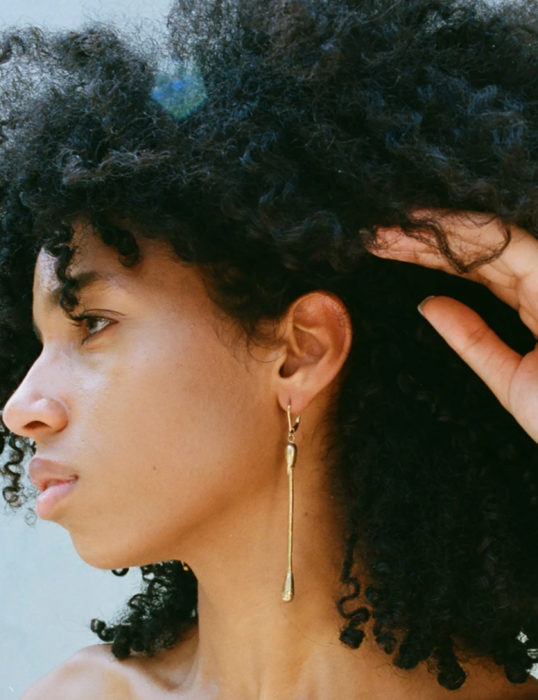How To Winter Proof Your Hair

We all know to switch up our skincare during winter as the change in weather; blustery winds, icy rain and an increase in the use of central heating can make skin drier, more sensitive and prone to itchiness and flaking. These environmental changes can take its toll on your hair and scalp too. Your hair needs just as much care and attention during the winter months to help keep it nourished and protected. We’ve enlisted the help of hair coach Enitan Agidee founder of Healthy Hair Studio for advice on how to fine tune your routine for healthier, stronger hair.
Get into a good routine
Cold weather does not affect the hair as much as it affects the scalp, mostly because skin (which is what the scalp is) does change with temperature. Your skin is a living cell and is a receptor of heat and cold, hair itself is a dead Keratin cell. During cold weather the scalp may feel drier, more inflamed or irritated as a result of colder weather. It is important to adopt a regime that is effective and consistent. This regime should ideally consist of a protein treatment, regular cleansing and moisturisation, don’t wait for your hair to feel dry before layering on moisturiser, it should always be a part of your haircare. A good moisturiser will have ‘water’ listed as the first ingredient followed by other ingredients to support the health of the hair.
Chemically treated hair, such as relaxed hair for example, is already at a greater risk of damage because of the breakdown in the structure of the hair, therefore damage to some degree is inevitable, not because it is cold but because the structure of the hair has been intentionally changed.
BASE EDIT: AS I AM Daily Moisturizer , HIC & NUNK Hair Moisturising Lotion, Bouclème Intensive Moisture Treatment
Prevention is better than cure
A protective style is a hair style that hides and preserves the oldest part of your hair – the ends. The installation and take down process should not damage your hair. Braids are quite common, however if your braids are too tight or too small then it is not a protective style. Wigs are also a great protective option. Whatever your style you must make sure that you’re able to fully moisturise your hair. When moisturising braids grab a small handful and spray down the length of the braid with a moisturiser, paying particular attention to where your hair ends and with wigs, spray the cornrows under your wig. What you do prior to installing your protective style is important. It’s advisable to do a protein or moisturising treatment prior to having your hair done and only keep your protective style in for 4-6 weeks maximum.
Read more: How To Care For Your Braids
TLC
Traditionally, we’ve always been told to remove humectants (think honey, glycerine or aloe vera) from our hair routine during winter. However, in the UK it may not be as much of an issue because humectants attract water to the hair and hair hydration is a positive all year round.
It is a good idea to use clarifying products as these really help to deeply cleanse the scalp and hair and allow both to fully absorb the nourishing ingredients of any treatments or products that you apply. For all hair types, Aloe Vera Gel is a great treatment for the scalp during the winter period if it is feeling inflamed. Also, hot oil treatments, pre-pooing are great practices to take up during winter. Oils like Coconut Oil are great as it protects the hair strands but do not use as a sealant as it solidifies the hair which can leave it feeling brittle. Other great quality oils are Avocado oil and Jojoba oil.
BASE EDIT:AS I Am Curl Clarity Shampoo, Briogeo micro-exfoliating shampoo, Cantu Clarifying Shampoo, Christophe Robin Purifying Scrub
For afro hair types, anything that is not a protective style or causes a restriction on caring for your hair whilst it is in that style should be avoided during winter. You can wear your hair out but it will dry out at a faster rate. Once in a while is fine but if you do this week after week you may experience an issue with length and moisture retention.
Consistency in your regime is the underlying foundation for ensuring hair health. A good regime should involve a high-quality moisturiser, keep your scalp clean and be mindful of the type of protective style you choose.
Follow: @enitanhaircoach
